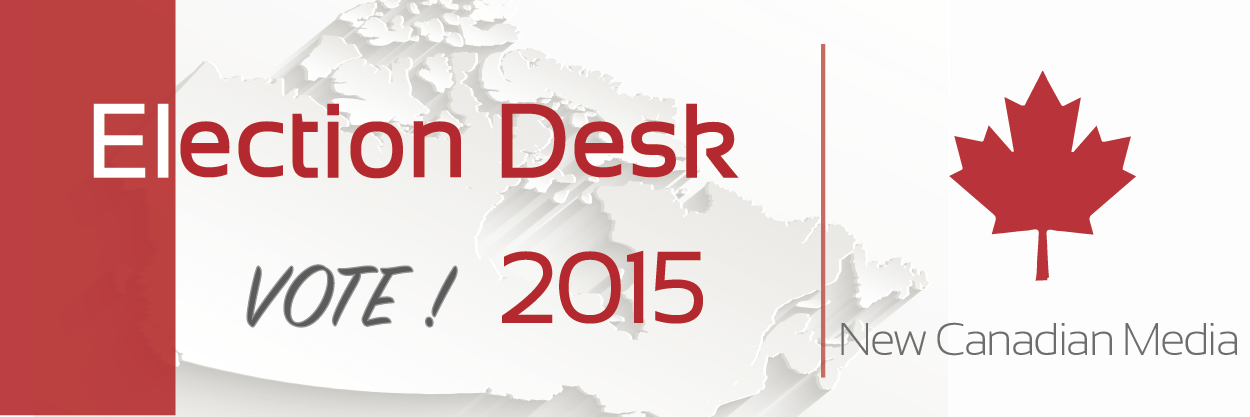With the final ballots long since counted and the prime minister-designate Justin Trudeau preparing to name his cabinet, members and guests of the Canadian Journalism Foundation (CFJ) gathered in downtown Vancouver to reflect on the longest election campaign in Canadian history.
The discussion, titled “Election 2015: How the Votes Were Won”, was held in an auditorium in the Simon Fraser University Segal Building on Oct. 27.
Panellists included Susan Delacourt, a columnist with the Toronto Star, Adam Radwanski, a political columnist with The Globe and Mail, Hannah Thibedeau, a veteran political reporter and Paul Wells, the political editor for Maclean’s magazine. Tom Clark, chief political correspondent for Global National, served as the moderator for the evening.
Beyond the rise of the Liberal party and the potential this administration has for greater cooperation with the media, the night’s discussion focused on the important role ethnic and immigrant communities played in this hotly contested race.
Miscalculations about #CdnImm voters
The panel discussed how all parties spent a significant amount of time targeting ethnic and immigrant demographics during this election period.
For Clark, who has covered every federal election campaign since 1974, digging into how parties were marketing themselves to these communities was “fascinating.”
“They were conflating concerns that certain communities would have, say with Kathleen Wynne [Ontario’s premier] and sex education,” he said. “I heard one ad that said, ‘if you don’t like Kathleen Wynne and sex education, vote for Stephen Harper.’”
Despite spending a significant amount of time, money and effort trying to court these demographics though, “those communities basically turned against the Conservatives,” Clark added.
“[T]here seemed to be a view that a lot of other immigrant communities take a certain ‘close-the-door-behind-you’ approach.”
Radwanski, who previously served on the Globe’s editorial team, referred to the Muslim vote in particular, saying that while the Conservatives mainly wrote off Muslim voters when taking a stance on the niqab issue, the unintended consequences of this decision were unforeseen.
“Where I think they made a miscalculation was … there seemed to be a view that a lot of other immigrant communities take a certain ‘close-the-door-behind-you’ approach,” he stated, speaking of an assumption that once immigrants arrive in Canada they are less likely to care about others wanting to reach Canada.
The reverse happened though. Rather than seeing the problem as one that only applied to Muslim Canadians, members of other communities identified with the fact that minorities were being targeted, Radwanski said.
Long campaign a benefit to Liberals
Making a light-hearted reference to the Jon Oliver sketch video that described Canada’s “gruelling” 78-day election period as “cute,” Clark asked the panellists how this year’s lengthy election differed from those of the past.
“I think everybody got into the long election campaign. I think democracy was sort of served by it,” Delacourt responded. “I think the turnout in this election is a really good argument for the longer election campaign.”
“I just don’t think we would have seen anything resembling the same results in a five-week campaign.”
Radwanski agreed. “I actually think the long campaign really made a difference, not just in that we all had more time to watch … [but] in that I just don’t think we would have seen anything resembling the same results in a five-week campaign,” he said.
The panel seemed to agree that Trudeau and the Liberal party “read” the long campaign better than the New Democratic Party (NDP), which ultimately allowed them to push past the former official opposition party in the last few weeks.
The NDP had the highest approval rating at the beginning of the campaign, polling nationally at around 33.2 per cent. The party even reached 37.4 per cent by late August.
However, this number shifted dramatically in late September as the Liberals overtook both the NDP and the Conservatives.
“They underestimated Trudeau,” explained Thibedeau, who was on the election trail with the Conservative party for the first four weeks of the circuit and joined the NDP later on.
“[Both the Conservatives and NDP] underestimated Trudeau.”
She pointed to specific moments that highlighted this, such as when Harper’s spokesperson was quoted as saying “I think that if [Trudeau] comes on stage with his pants on, he will probably exceed expectations.”
Thibedeau continued, “Even more than that, the NDP … underestimated Justin Trudeau as well, and I think that was the biggest fault with those two parties.”
Media coverage in the new Trudeau era
On the day after he was elected, Trudeau travelled to Ottawa to take questions from journalists at the National Press Theatre. This was the first time since 2009 that a prime minister (or in this case, a prime minister-designate) was available to take questions at this official site.
For the panellists, this signalled a potentially more amiable relationship between journalists and the federal government in the future.
“It’ll be interesting to see if they maintain a lot of the restrictions that we’ve seen since ’06 or if they’ll loosen those moving forward,” said Thibedeau.
Wells, who moderated the Maclean’s debate in early August, echoed these thoughts.
“I believe that access and a general sort of relaxed attitude around journalists is going to be substantially greater under Justin Trudeau than under Stephen Harper,” he commented. “But I note that Justin Trudeau met with the premier of Ontario today and it was photo-op only, no questions.”





